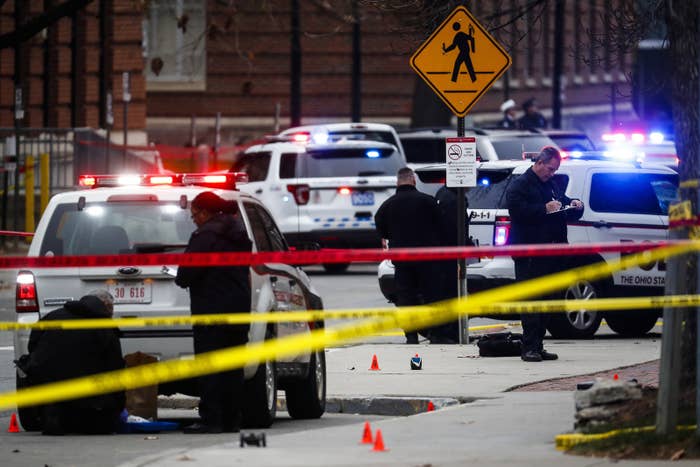
An Ohio State University student who used a car and knife to injure 11 people in a violent rampage Monday morning appears to have been inspired by ISIS and American Muslim cleric Anwar al-Awlaki, FBI officials said at a press conference Wednesday.
The terrorist organization, however, does not appear to have played a direct role in planning or carrying out the attack in the university, Angela Byers, special agent in charge of the Columbus, Ohio, FBI office said.
"At this time, we are not aware of anyone else being involved in the planning of this attack, but the investigation continues," Byers said. "It appears that (Abdul Razak Ali) Artan may have been at least inspired by Anwar al-Awlaki and the Islamic State."
Reporter who profiled Artan recalls a nervous new student https://t.co/nyy2tkU5aG
Abdul Razak Ali Artan, a Somali refugee, had not been under FBI investigation nor popped up on the agency's radar before the attack, Byers said.
Investigators are still reviewing electronic evidence and conducting dozens of interviews to determine exactly what the motive was behind the attack, and how Artan may have been influenced by ISIS.
But despite ISIS claiming responsibility for the attack, Byers said there was no evidence the group had contact with Artan before Monday's incident.
"In the past they have claimed responsibility when the assailant has been dead and they can't refute that, so that makes it pretty easy for them," she said.
Artan also appears to have been influenced by American Muslim cleric Anwar al-Awlaki, who was killed by a US drone in Yemen in Sept. 2011. Awlaki gained prominence through sermons posted on YouTube. After fleeing to Yemen, Awlaki praised the Fort Hood shooter and the failed "Underwear bomber" who tried to blow up a flight over Detroit, and in 2010 called for jihad against the US.
He was accused of helping organize attacks by al-Qaeda.
Byers said the agency is also looking at a Facebook post that was published the day of the attack. Investigators were still working to make sure it was authentic.
Despite the post, Byers said, the short time between the time it was published and the attack would not have helped agents prevent the assault.
